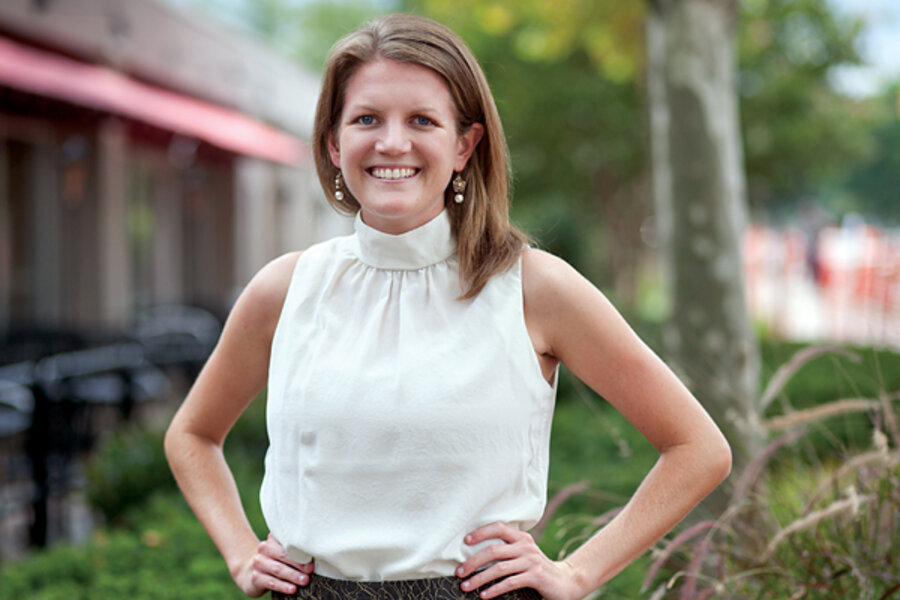Occupation: administrative assistant at a Washington think tank
Personal: single
2008 vote: John McCain
A McCain voter in 2008, Elizabeth Cole this year leans toward Obama – but only by the slimmest inclination.
The 25-year-old says she isn't a big consumer of political news. She doesn't like to talk politics because the national discussion is often "nasty" – and inside the political pressure cooker of Washington, D.C., the debate is often all heat, no light. Her political leanings don't line up cleanly with either party. She believes government should play a role in helping the neediest, but she's concerned the nation may be overstepping not only what it can afford but also what it should offer.
A former Peace Corps volunteer in Nicaragua, Ms. Cole credits Obama with putting a Latina on the US Supreme Court. But she opposes a blanket amnesty for illegal immigrants and emphasizes the need for citizenship to come through established procedures.
She likes parts of Obama's health-care law, such as easy and cheap access to birth control for women, but she fears creating a system like the poorly run government health-care systems in Argentina or Nicaragua.
Cole is in a demographic group that leans hard toward Obama: females ages 18 to 29. And women's issues are her top concern: "I can't stomach some of the conservative positions on abortion rights and issues around birth control." If she chose today, women's issues and support for marriage equality for gay couples would have her voting for the president.
What could pull her toward Romney? It's not so much the economy – she wonders if Romney could turn it around and acknowledges that Obama inherited an economic mess.
Her big question with Romney is whether he can show some spine. In her eyes, Romney's past is full of policy "indecision," as she puts it, citing similarities between his Massachusetts health-care plan and Obama's health-care law, which Romney has promised to repeal.
That leaves Cole wondering: "Could he give me his word?"
– David Grant, staff writer








